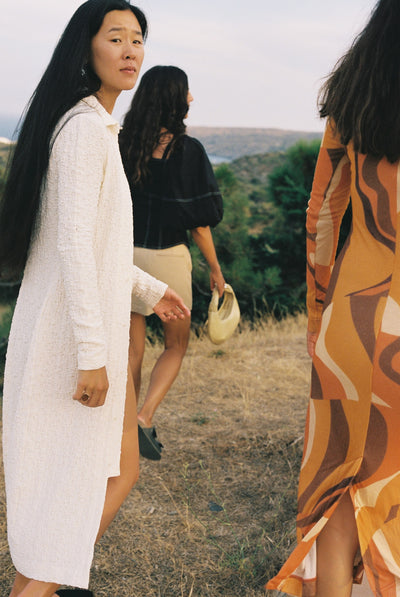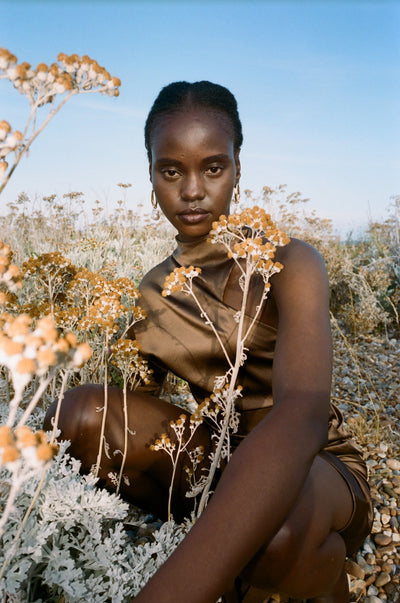Our Approach
Sustainability at Rejina Pyo begins with thoughtful design - where form, function and purpose come together. We create pieces to be worn and cherished for years, guided by a responsibility to both people and the planet. Taking a slower, more intentional approach, we prioritise lower-impact materials and processes to create pieces that stand the test of time. Like the nature of design itself, our practices are always evolving. With each collection we continue to learn, adapt and move forward.
Our Collections
Our ready-to-wear, shoes, and bags are produced in Portugal and Spain, in partnership with small-scale manufacturers who share our dedication to quality and responsible craftmanship. W We work with European-sourced materials and local supply chains wherever possible. Our Alpaca knitwear is made entirely in Peru - from raw fibre to finished piece - honouring the traditional techniques and heritage of the region. Every piece of Rejina Pyo jewellery is crafted in Thailand by our long-standing partner, certified by the Responsible Jewellery Council.





